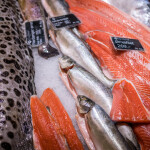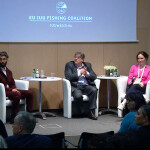Preventing disease in mollusks is at the heart of a new European project, which has the support of 21 industry partners including the Institute for Food and Agricultural Research and Technology (IRTA), and is coordinated by IFREMER.
The major aim of the project, called VIVALDI (Preventing and mitigating farmed bivalve diseases), is to up the European mollusk industry’s sustainability and enhance its competitiveness through the development of new tools and techniques for approaching disease control in the species.
Six technical work packages are involved in the project, which will last for four years, including the study of pathogen diversity and their life cycles, defense mechanisms of bivalves against pathogens, and genetic improvement as a tool to increase the resistance against diseases.
“The aim is to understand the interactions between the animals and their surroundings to then optimize the production through a more efficient management and health control,” said IRTA in a prepared statement.
IRTA is involved in all work packages that occur within the Sant Carles de la Ràpita centre (Catalonia, Spain), coordinating the follow-up of the study cases representing the main areas of bivalve production. The institute will also take part in the cultivation of management techniques to be utilized in an effort to improve the production and control of recurrent massive mortality among its Pacific oyster farms due to the effects of the herpesvirus.
The mollusk industry in Europe is comprised of over 8,000 companies, most of them small in size, and is focused predominantly on species like mussels, oysters, and clams.






